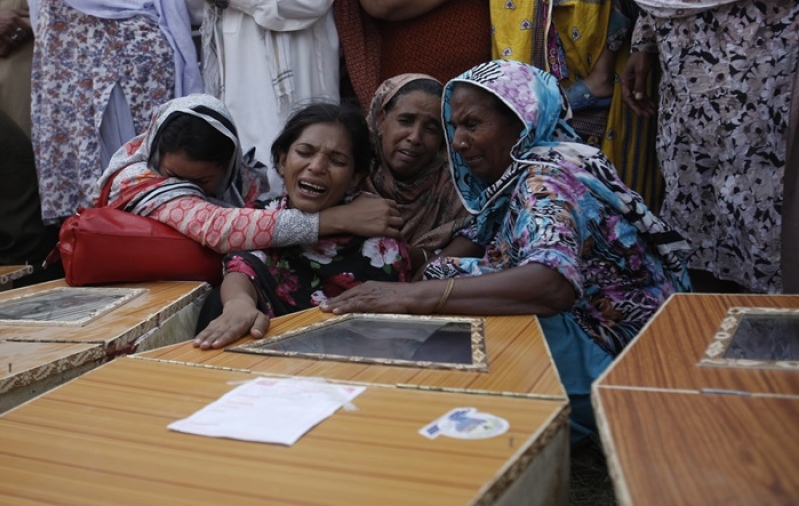
Angry Christians protested across Pakistan on Monday to demand better protection after a devastating double suicide bombing at a church killed more than 80 people.
The attack on All Saints church in the northwestern city of Peshawar after a service on Sunday is believed to be the deadliest ever to target the country's small Christian minority.
Christians demonstrated in towns and cities across Pakistan, including Islamabad, Lahore, Karachi and Peshawar, demanding better protection from authorities, according to Yahoo! News.
The death toll had risen to 85 by Monday evening, when Christians across the country protested the worst atrocity their community has suffered in Pakistan's history.
Crowds blocked roads, burned tires and waved wooden crosses as they marched. Many shouted demands for government protection, while voicing skepticism about whether Prime Minister Nawaz Sharif's government could stave off attacks. Mission schools announced they would close for three days, according to The New York Times.
"Some protesters pelted stones at some shops that ignited a brawl and scuffle between the two groups (of Christians and Muslims) who also attacked each other with stones," police chief Muneer Shaikh told AFP, as reported by Yahoo! News. "We have arrested 45 suspects who were agitating in the area and the situation is now under control."
More than 600 protesters blocked a major highway in Islamabad for several hours during the Monday morning rush hour, burning tires and causing long tailbacks, an AFP photographer said, and later about 2,000 people gathered to protest outside parliament.
In Peshawar, about 200 demonstrators took to the streets, smashing windows at the main Lady Reading hospital, where many of the victims were treated, and blocking the main Grand Trunk road, according to Yahoo! News.
Christians in Pakistan already contend with deep-rooted prejudice. Most are poor and traditionally carry out menial work like sweeping street garbage and cleaning sewers. Muslim mobs, enraged by rumors of blasphemy, occasionally rampage through Christian slums, and have burned hundreds of houses. Extremists killed the Christian minorities minister Shahbaz Bhatti in early 2011.
Still, Sunday's attack touched a raw nerve across sectarian lines. Clerical organizations and all major political parties issued statements of condemnation. On Monday, Parliament passed a resolution condemning the bombing as "an attack on Pakistan," according to The New York Times.
"Pakistan's politicians are failing at the most basic of questions - about what kind of Pakistan they want to shape and lead," said Cyril Almeida, a writer with Dawn newspaper. "Whether out of sympathy, fear or cowardice, no one is willing to stand up to radical Islamists and say: 'No, enough is enough. We are taking our country back.' "
Perhaps the sharpest political fallout has been felt by Imran Khan, the former cricket star who has long urged a truce with the Taliban and whose political party runs Khyber-Pakhtunkhwa Province, where the bombing took place.
On Sunday, Mr. Khan, who is more used to adulation at his appearances, was jeered by Christians with cries of "shame" and "Imran is a dog" at a Peshawar hospital where victims were being treated, according to The New York Times.







